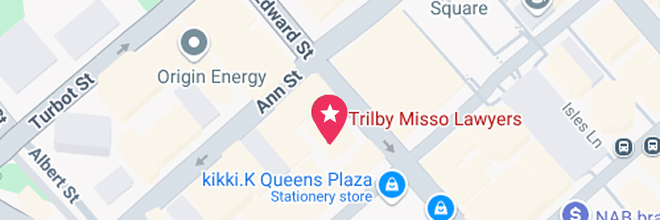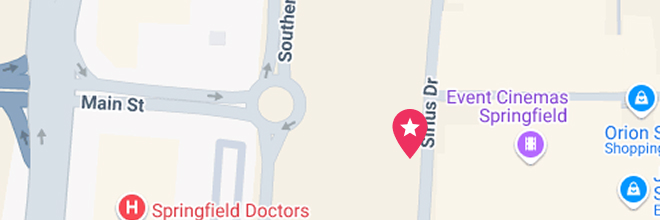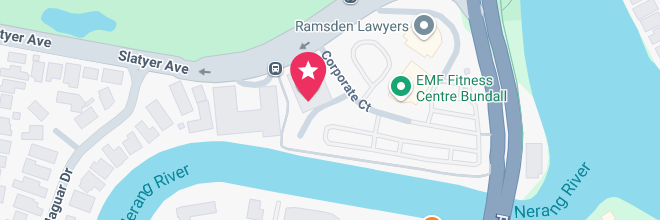What is a WorkCover claim?
It is a sad reality that Queenslanders are injured all too frequently at work. Workers have some protection in that employers must have WorkCover insurance and an injured worker can make a WorkCover claim. There are two types of WorkCover claim:
- Statutory WorkCover claim: All workers, injured in connection with their work, can bring a claim for WorkCover statutory benefits. This includes payment of some wages while you are unable to work and your medical treatment expenses. This is excellent short term, immediate help for anyone injured in connection with work.
- Common Law WorkCover claim: A common law claim also requires the worker to establish that they were injured in connection with their work, in addition to this, the worker must establish that the employer was at fault for the accident happening, in legal terms, this is called negligence. If the injured worker is successful at establishing these important elements, they are then entitled to compensation.
The idea is that the monetary settlement should put the worker in the position they would have been in, had that accident not occurred.
A compensation claim will encompass a sum of money for a variety losses like:
- Pain and suffering – loss of enjoyment of life
- Lost past wages
- Lost future wages
- Medical expenses
- Future medical expenses
- Care and assistance – personal and in the home
- Home modifications and equipment
It is impossible to reverse being injured and take away the impact of the injury on your life, the idea of seeking compensation is to, as best as can be done, put you in the position you would have been in in a monetary sense.
“Do I have a claim?”
Use this simple online tool and find out if you have a claim in less than thirty seconds. You can choose to remain anonymous.
Who is eligible to make a WorkCover claim in Queensland?
In assessing who is eligible to make a WorkCover claim, lawyers will look at:
- Location where the work accident happened – At Trilby Misso we act for people injured in Queensland
- Fault – to be eligible to make a common law WorkCover claim, you will need to establish that your employer was at fault for the accident. Lawyers specialise in the laws around negligence (fault) and can examine your specific circumstances to establish if negligence can be established against your employer.
- Injury – a compensation claim is to compensate you for any injuries sustained in the work accident. Lawyers will gather medical evidence to support your WorkCover claim.
- Date of accident – a WorkCover claim must be brought within the necessary time frames, which generally speaking is three years from the date of accident.
To bring a claim for compensation you must be 18 years old. Where children are involved in an accident, a guardian will bring a claim on their behalf.
How do I file a WorkCover claim?
If you are injured in connection with your work and want to access statutory WorkCover benefits like your medical expenses and wages for your time off work, you will need to:
- Complete a claim form (available online), and
- Have your GP complete a work capacity certificate.
At Trilby Misso, we assist injured workers in bringing common law claims for compensation. A common law claim seeks compensation for injuries sustained at work, including:
- A payment for pain and suffering,
- Lost wages in the past and future, and
- Future medical expenses.
To file a common law WorkCover claim, the legal team will assist you in preparing a Notice of Claim form which is a comprehensive claim document setting out all the allegations of negligence against your employer, your claim for pain and suffering, lost wages and medical expenses in the past and future. The legal team will gather evidence to support your claim and prove your case, that evidence will be sent to WorkCover with submissions about your case.
What types of injuries are covered under a WorkCover claim?
Any injury sustained in connection with work will be covered under a WorkCover claim. Unfortunately, as a result of poor systems, lack of training, human error and faulty equipment, Queensland workers are susceptible to sustaining injuries at work.
Injuries covered by WorkCover include:
- Physical injuries; and/or
- Psychological injuries.
It is not uncommon for a worker to develop a psychological injury as a result of adjusting to life with a physical injury.
Safe Work Australia’s Key Work Health and Safety Statistics 2023 show that:
- Body stressing, falls, slips and trips, and being hit by moving objects are the cause of most work-related injuries in Australia;
- Vehicle incidents and being hit by moving objects continue to account for most fatalities; and
- Work-related mental health conditions are rising, with time off work in these cases more than four times longer than for other injuries.
It is important that you seek medical treatment if you have sustained any work related injuries.
What documentation is required to support a WorkCover claim?
To bring a successful WorkCover claim in Queensland you will be required to prove that:
- The work related accident occurred;
- Your employer was negligent; and
- You sustained an injury as a result of the accident.
Your lawyer will focus on gathering evidence that will assist in proving those three elements; the accident, negligence and injury/loss.
Examples of documents and evidence your legal team will look for are:
Accident & negligence related evidence
- Photos of accident scene
- Your employer details
- Witness statements
- CCTV footage
- Meeting notes
- Accident reports
- Procedure Manuals
- Maintenance records
- Complaint records
Injury/loss related evidence
- Ambulance notes
- Hospital records
- Medical notes
- Radiology reports
- Photos of injury
- Witness statements
- Income records (before and after accident)
- Expense receipts
- Specialist medical reports
- Medico-legal reports
If you are involved in an accident and are able to take photos and gather evidence at the scene that is always very helpful to your legal team. It is also important that you report the accident in accordance with your employer’s procedures and policies.
What is the time limit for lodging a WorkCover claim in Queensland?
One of the first questions a lawyer will have for you will be to establish on what date you were injured at work. An injury may have occurred on a specific date, or over a period of time. It is very important that you have the correct date as this will determine the timeline and deadlines for your claim. If you are unsure of the date of accident, sometimes medical notes, rosters and your diary can be of assistance in establishing the correct accident date.
The deadlines to lodge claim forms and file documents in the courts are very important, missing them could result in you losing your right to make a claim.
We recommend contacting a lawyer as soon as possible to get advice on what time limits will apply to your specific circumstances. We also recommend making notes of any deadlines as the impact of missing the time limits could mean losing your right to claim compensation.
In Queensland there is a three year limit for you to file court documents to protect your claim. If more than three years has lapsed since the date of accident, and you have not filed court documents to protect your claim, it is most likely you will have lost your entitlement to claim compensation. We recommend seeking urgent legal advice if you think more than three years has lapsed since the accident to establish if there are grounds upon which the court may grant an extension of time may be granted.
How does WorkCover compensation differ from other types of compensation claims?
Procedures, rights and all the related rules for bringing a WorkCover claim in Queensland are set out in the Workers’ Compensation and Rehabilitation Act 2003 (Qld). This is an Act of Parliament that a specialist personal injury lawyer will have a good understanding of as it sets out:
- Specific timelines and deadlines for bringing a WorkCover compensation claim,
- An injured worker’s rights,
- An injured worker’s obligations,
- The employer’s obligations, and
- Procedures to follow to bring a WorkCover compensation claim.
WorkCover differs from other insurers in Queensland because it offers an injured worker the ability to bring a statutory WorkCover claim. This allows the injured worker to access weekly benefits to assist while they are unable to work and any necessary medical treatment. Under other insurance schemes, the injured person does not have access to this immediate short term financial help.
What are the common reasons WorkCover claims are denied, and what steps should I take?
Approximately 95,000 WorkCover claims are lodged each year and on average, 4% of those are denied. Approximately 3% of claims are reviewed and 59% of those uphold the initial decision to deny the claim, 41% are successful on review.
Common reasons for a WorkCover claim being denied are:
- The injured person was not considered to be a “worker” in the legal sense;
- The injury was not connected to work, or outside work hours;
- The injury was not reported to the employer;
- The claim was lodged outside the required timeframe being 6 months from the date of injury;
- The accident did not happen in Queensland;
- Where a psychological injury is sustained, it is common for WorkCover to establish that the employer took “reasonable management action” and deny the claim.
If your claim is denied, there is a strict three month period to have the decision reviewed.
Many workers do not have the decision reviewed or miss the three month period, even though they may have been successful on review. We recommend having the reasons for denial reviewed as soon as possible so that you can have the decision reviewed within the 3 month period.
“Do I have a claim?”
Use this simple online tool and find out if you have a claim in less than thirty seconds. You can choose to remain anonymous.
Can I appeal a WorkCover claim decision?
If your claim to WorkCover is denied, this happens in about 4% of applications, it is possible to have the decision reviewed.
If you are applying to have a decision reviewed, we recommend seeking urgent legal advice as there is a strict three month period in which you can dispute the decision and apply for a review. If you fail to dispute the decision and ask for a review within the three months, you will have lost your opportunity to challenge WorkCover’s decision. It is only in very special circumstances that an extension on that three month time frame will be granted.
In the unfortunate event that you apply for a review and WorkCover’s decision to deny your claim is upheld, there is still an opportunity to lodge an appeal to the Industrial Relations Commission. This appeal must be lodged within 20 days of the review decision.
We strongly recommend seeking legal advice if you are applying for review or appealing a review decision as there are such short and strict time frames and a lawyer can prepare legal submissions addressing the various flaws in WorkCover’s decision to deny your claim.
How is the amount of compensation determined in a WorkCover claim?
The amount of compensation you might receive in a WorkCover claim will depend on many factors. WorkCover claims are assessed by looking at the available evidence and trying to quantify, as best as can be done, the losses you have suffered and will likely suffer in the future. The compensation sum is to attempt to put you in the position you would have been in, had the accident not happened.
In assessing the quantum (dollar value) of your WorkCover claim, lawyers will often look at the following areas:
- Pain and suffering – the medical evidence will look at the severity of the injury and also the ongoing nature of any injury. Some injuries fully resolve, as such they are awarded less compensation than a more permanent and serious injury.
- Past economic loss – this is a sum of money to compensate you for income you have lost as a result of the injuries sustained in the accident. You may have received this already in weekly payments from WorkCover, however, it is still claimed and refunded back to WorkCover.
- Future economic loss – the medical evidence will address what impact the injury will have on your ability to work in the future. The amount of compensation you are awarded will depend on the nature of the injury, your age (time left in workforce), and the impact of the injury on your ability to work.
- Medical expenses – a compensation claim will include an amount for any related medical expenses incurred and those recommended for the future.
- Care – in some circumstances compensation can be claimed for care required (paid or unpaid) to look after you or your home.
What medical expenses are covered under a WorkCover claim?
In the period following an accident, a worker will often apply for statutory WorkCover benefits, if that claim is accepted, WorkCover will fund your medical treatment. The medical treatment needs to be related to the work injury and be recommended by a medical practitioner. Common treatment that is funded includes:
- Physiotherapy
- Hydrotherapy
- Occupational Therapy
- Surgery
- Hospital fees
- Counselling
- Counselling
- Specialist treatment
When your lawyer prepares a common law claim, they will gather medical evidence about your medical needs in the future and they will claim compensation for the medical treatment you are likely to need in the future.
Can I claim for psychological injuries through WorkCover?
If you are injured at work and sustain a psychological injury you are entitled to make a WorkCover application for compensation.
It is not uncommon to sustain a psychological injury as a direct result of a workplace accident or secondary to a physical injury.
Examples of work related psychological injuries claims are:
- Post-traumatic stress disorder
- Burnout
- Bullying
- Depression
- Work-related anxiety
- Work-related stress
- Depressive disorder
- Adjustment disorder
If you are suffering from any psychological disorder, we strongly recommend seeking urgent medical attention.
What do I do if my WorkCover claim feels too low?
WorkCover’s obligation to pay weekly payments and fund medical treatment will continue until a point where you are deemed to have reached maximum medical improvement, that is, you are stable and stationary, not getting better and not getting worse. When a doctor deems that you have reached that point, WorkCover’s obligation to pay the statutory claim benefits will cease.
Deeming that you have reached a point where you are stable, does not mean the doctor is saying you are cured and have no issues. They are saying you have reached a point where you have accessed all the relevant treatment and made the maximum improvement you are likely to make. If you have a permanent injury, WorkCover can have that injury assessed and make a Lump Sum Offer of settlement. That Lump Sum Offer is calculated by reference to a table of injuries and a percentage of permanent impairment. It is not calculated by considering your age, time left in the workforce, ability to work in the future and future medical needs. Because of the arbitrary nature of how a Lump Sum Offer is calculated, it isn’t uncommon to feel like it is too low.
We strongly recommend seeking legal advice and having the circumstances of your case reviewed before you consider accepting any Lump Sum Offer. In most cases, if you accept the Lump Sum Offer, you forego your right to bring a Common Law claim.
Page author
This page was written by Kathryn MacDonell, CEO at Trilby Misso Lawyers.
Kathryn’s journey in the legal field began in 2001 at Trilby Misso as an Article Clerk, leading to her official admission into the Supreme Court of Queensland in 2005. Her career at Trilby Misso saw her rise to the position of Principal Lawyer by 2011, where she was responsible for leading teams across the Sunshine Coast and Brisbane. Despite her management responsibilities, Kathryn remained dedicated to securing compensation for her clients, driven by a passion for assisting Queenslanders. Her legal acumen has been showcased in numerous challenging cases, with her making appearances in the District Court, Supreme Court, Court of Appeal, and even the High Court of Australia.
Frequently Asked Questions
- What injuries are covered under a WorkCover claim in Queensland?
WorkCover covers injuries resulting from work activities, including physical injuries, psychological conditions, and illnesses caused by workplace conditions. - How do I make a WorkCover claim if I’ve been injured at work?
Report the injury to your employer, seek medical assessment, and submit a WorkCover claim form as soon as possible. - What benefits can I receive through WorkCover?
WorkCover benefits include medical expenses, wage replacement, rehabilitation, and, in some cases, lump-sum compensation. - What happens if my WorkCover claim is denied?
If denied, you can request a review through the Workers’ Compensation Regulator or seek legal advice to appeal the decision. - How long does it take for WorkCover to process my claim?
WorkCover claims are usually processed within a few weeks, though complex cases may take longer. - Can I make a WorkCover claim if my injury developed over time?
Yes, gradual injuries or conditions caused by repetitive work activities are covered under WorkCover.
Here’s how our ‘no win no fee’ process works:
-
We chat
 It’s a free consultation.
It’s a free consultation. -
We meet
 A free detailed discussion.
A free detailed discussion. -
We plan
 You say ‘go’ – we build your case.
You say ‘go’ – we build your case. -
We lodge
 We present
We present
your case. -
We conclude
 We reach a settlement.
We reach a settlement.
You pay nothing until you win
We’ll also provide certainty and clarity, with a fair structure that has no ‘uplift’ fee, ever. You’ll pay nothing ‘til your claim is won.
Don’t delay. Speak with Trilby Misso today.
Your next step is a small one. All you need to do is give us a call on 1300 730 845 or complete this form here to arrange a quick chat.
During this initial conversation, we will:
- Have a chat about the circumstances and nature of your injury.
- Give you an indication of your eligibility to make a claim for compensation.
- Explain, in simple terms, how our process works. We will answer
any questions you have about fees, the legal process, and anything else you’re unsure about relating to your injury.
We understand that taking legal action can be stressful, and we’ll do all we can to ease your concerns.
The chat can take place at our place, your place, or by phone. There is no cost, no pressure, and no obligation.







